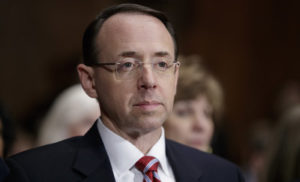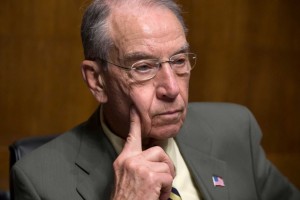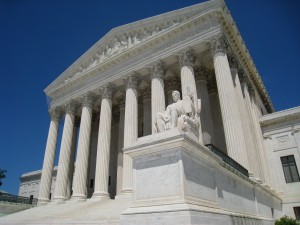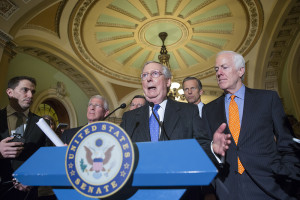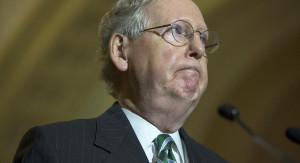Rod Rosenstein.
That name, right there, well might become the most-watched in Washington, D.C., behind — quite naturally — the name of the president of the United States.
Rosenstein has been picked by Donald J. Trump to become the deputy U.S. attorney general.
Why is this fellow so important right now? Because his boss, Attorney General Jeff Sessions, has recused himself from anything to do with an investigation into whether Trump was too cozy with Russian government officials. That means Rosenstein, by all accounts a hard-nosed prosecutor, will get to decide whether to appoint a special prosecutor to investigate the Trump-Russia matter.
Rosenstein’s confirmation hearing focused almost exclusively on Sessions, Trump and the Russians. Senate Judiciary Committee Democrats sought to pin him down, trying to get him to commit to picking a special prosecutor. Rosenstein didn’t give that one up — to no one’s surprise.
Unlike Senate and House Republicans who say it’s “too early” to determine whether there’s a need for a special counsel, I happen to believe one should get the call. There needs to be a thorough investigation of what the president knew about the Russian effort to influence the 2016 presidential election, when he knew it, whether he colluded with the Russians. We also need to know whether Trump or someone from his campaign staff sought to renegotiate sanctions leveled against Russia by the Obama administration over the Russians’ meddling in our electoral process.
Rosenstein isn’t your ordinary, run-of-the-mill deputy AG. Folks in that job usually blend into the woodwork, never to be seen or heard from again once they take office.
Not this guy.
Assuming the Senate confirms him — and it should — Rosenstein is about to settle into one of the hottest seats in Washington.
Do the right thing, sir. Pick that special counsel.
